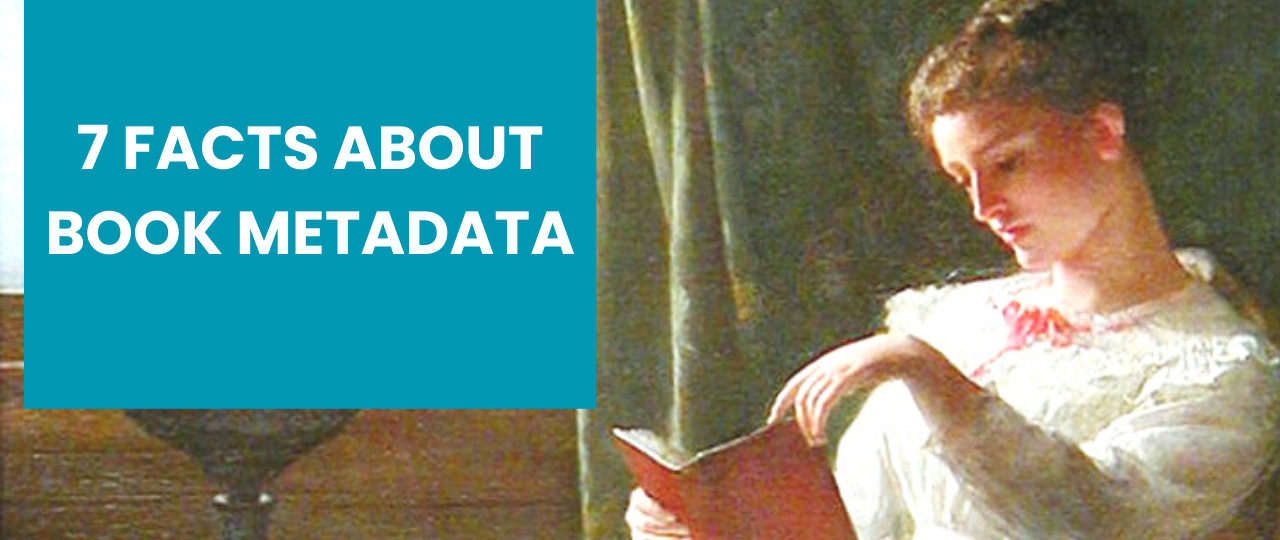What is Metadata? KDP has Metadata guidelines, that can be confusing. Salty Vixen Stories & More wants to help you understand what Metadata is. Book metadata is important to your book's categorization, discovery and overall book sales. It should be part of any author's overall book marketing strategy, and successful self-publishers know how to incorporate as much quality metadata as possible into their sales plans. Following are seven facts about book metadata to keep in mind.
Title Metadata Describes Your Book
Title metadata can be used to describe what a book is about. Descriptive metadata should include elements such as what genre the book fits into, who is telling the story, and keywords or information that will appeal to the intended audience. Specific descriptive information that includes terms like "beach read" or "authoritative biography" will help put the book title on the radar of readers who are looking for a certain kind of book.
Title Metadata Tells Librarians and Booksellers Where to Shelve Your Book (and Who'd Want to Buy It)
Including Book Industry Standards and Communications (BISAC) codes in book metadata explains what genre the book is. These codes allow marketers, retailers, librarians, online stores, search engines and others to know where to shelve a book or how to locate it online. More than one BISAC code can be assigned to a book in the metadata, ensuring it reaches the targeted potential audiences.
Title Metadata Sells Your Book to Consumers Online
Online consumers unwittingly access book metadata when searching for a book online. There is so much information that can be added to the metadata including title, description, contributors, genre, keywords, related titles and the like. This makes it easier to discover by potential readers—including those who already know the author's work as well as those who don't.
Title Metadata Provides Search Engines with the Perfect Answer
This is one of the most important aspects of metadata utilization. As noted above, book metadata can include all the answers readers have about a specific book—even if they don't know what book they are looking for. Inclusion of keywords, positive book reviews and comments, authoritative recommendations, similarity to other titles and everything else in the metadata means that search engines can find it. That's a big part of how specific books get into the hands of specific readers. It's especially important to include series information in the metadata, too. That's how readers can find the next book in a series like "Harry Potter" or "Game of Thrones".
Title Metadata Tells Readers Who You Are
Title metadata should include as much relevant information about the author as possible. Whether or not the author has received recognition, awards or special education can make a difference for multitudes of readers. Let's face it, there is so much competition when it comes to attracting readership—especially for new authors—that anything that puts the author "above the crowd" in any way can help sell the right books to the right people. For example, a writer who grew up in Ireland might have personal experience that lends itself to a book set during the time of—say, the Irish potato famine. American authors might write an equally well-written book about the Irish potato famine, but associations like this can help sell books.
Title Metadata Links You to Your Contributors
Information about illustrators, collaborators, other contributors and even reviewers should be part of your title metadata. Searches for positive reviews by respected critics link authors to the critics —and the "paper" or online source for whom they write critiques. Similarly, any metadata that includes information about co-authors and other contributors will increase the likelihood that a book will appear in multiple and varied searches. Collaborators want their work discovered, too, even if they only played a small part in a book; for instance, in writing a foreword or afterword.
Title Metadata Preserves Images and Illustrations
Many illustrators have dedicated followers who buy books solely for their artwork, some of which end up being highly collectible. Including associative information in book metadata helps books reach a wider audience and that means more sales. Furthermore, the metadata of illustration and image information ensures that pictures and artwork will not be lost in the dungeons of the world wide web. Authors will find that images that have been tagged with metadata are, and will always be, easy to access.
Book metadata might seem confusing at first but it's actually easy to learn and has a genuine impact on your book sales, helping readers discover your book and know they want to read it. The more exposure your book gets, the better it sells.











